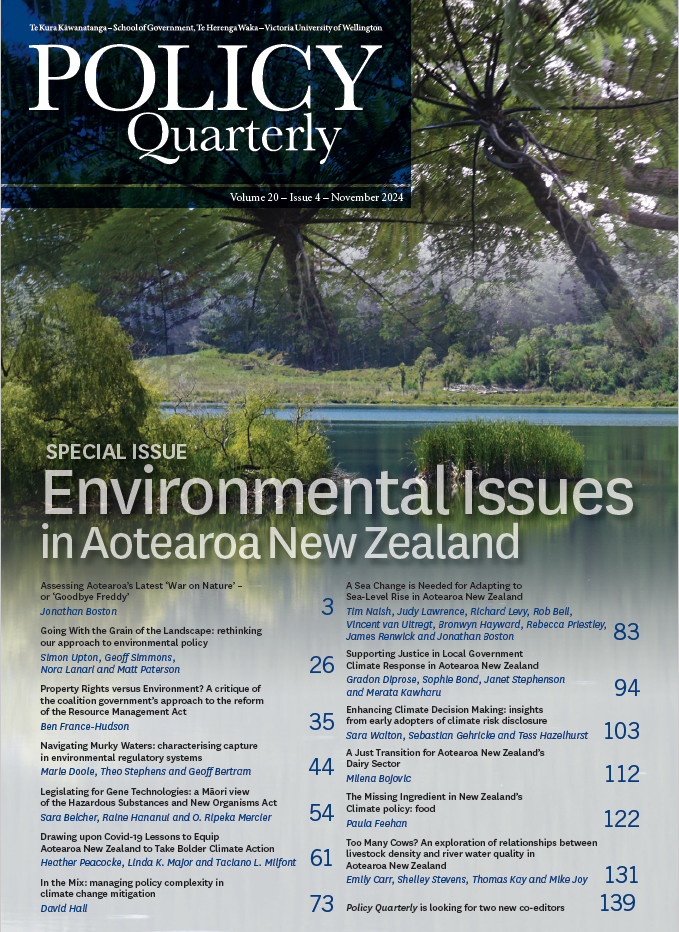Legislating for Gene Technologies: a Māori view of the hazardous substances and new organisms act
DOI:
https://doi.org/10.26686/pq.v20i4.9633Keywords:
genetic modification, legislation, mātauranga Māori, mauri, whakapapa, taonga speciesAbstract
In Aotearoa New Zealand, gene technology is currently governed by the Hazardous Substances and New Organisms Act 1996. Recent Tiriti-led research has resulted in nationwide collaborations with mana whenua towards the culturally inclusive development of gene technology for invasive species management. This article reviews the Hazardous Substances and New Organisms Act’s fitness for purpose from a Māori and Tiriti perspective. We make recommendations for future legislative review, including that regulation and policy ‘give effect to’ te Tiriti/the Treaty, that whakapapa and mauri considerations are accounted for in gene technology regulation, and that cultural impact assessments are based on whakapapa and mauri.
Downloads
Downloads
Published
Issue
Section
License
Permission: In the interest of promoting debate and wider dissemination, the IGPS encourages use of all or part of the articles appearing in PQ, where there is no element of commercial gain. Appropriate acknowledgement of both author and source should be made in all cases. Please direct requests for permission to reprint articles from this publication to Policy-Quarterly@vuw.ac.nz.



